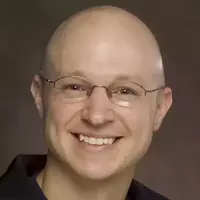Advancing Scientific Computing Skills and Diversity in the Geosciences Through Asynchronous Learning at the Margins of Higher Education
Poster Session Part of
Monday Poster Session
Authors
 Gillian B Haberli, EarthScope
Gillian B Haberli, EarthScope
 Mike Brudzinski, Miami University-Oxford
Mike Brudzinski, Miami University-Oxford
 Michael Hubenthal, EarthScope
Michael Hubenthal, EarthScope
The Seismology Skill Building Workshop (SSBW) plays an important role in the geophysics ecosystem by enabling students to develop critical skills required for graduate studies and research, outside of the traditional academic curriculum. Since its creation in 2020, the SSBW has undergone significant instructional design enhancements to improve learning and increase learning persistence. The evolution was driven by extensive analysis of student performance data, facilitated through a Learning Management System (LMS). In addition to enabling interactive learning experiences, LMSs have accessibility features that can foster inclusion of diverse and marginalized populations, for whom geoscience education may have seemed inaccessible in the past. The LMS-based asynchronous training model could be strategically replicated to create more effective learning opportunities that reach larger audiences and help build the capacity necessary for the future geoscience workforce. However, there is no consensus regarding the essential skills required for success in the geoscience workforce, what will be covered in the traditional academic setting, and what should be the focus of training development outside the classroom. For example, the training could aid in giving geoscientists more access to data science skills, strategies for implementing FAIR data management principles, and development of complementary social science abilities. Initiatives such as EarthScope's move to the cloud, highlight how the geoscience workforce is evolving and emphasize why training outside the academic setting will shape how we do science in the future. This presentation will seek audience recommendations for what should be the focus of future supplemental training to aid in broadening participation in geoscience.


